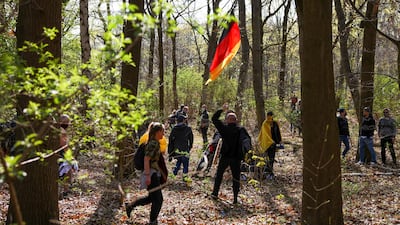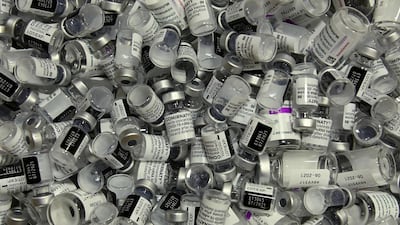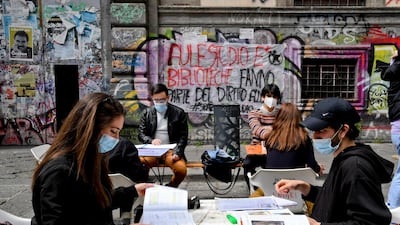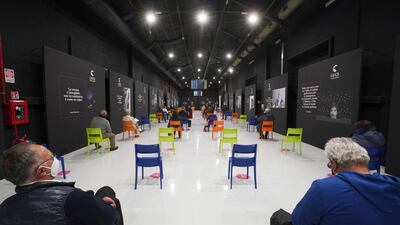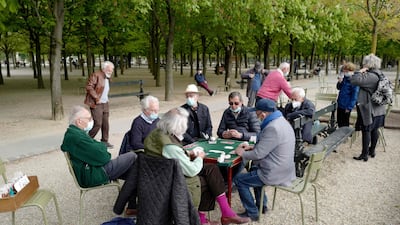Britain’s Transport Secretary Grant Shapps has given a strong indication that international travel between the UK and some countries on its red list will open up in the coming weeks.
The development bodes well for countries that are logging the highest vaccination rates and falling infection rates.
The British government is expected to announce its new traffic light system early next month, with an algorithm that will consider vaccination rates and infection numbers.
Mr Shapps told a webinar hosted by the ConservativeHome blog that countries with significant protection against Covid-19 would be freed up for travel. The government will announce countries that are on the green, amber and red lists before the restart of air travel on May 17.
“It's not the case where we [Britain] end up very vaccinated by the summer and so does ‘X’ country and we're still saying you can't travel. No, they would automatically find themselves in a better traffic light category as a result,” he said.
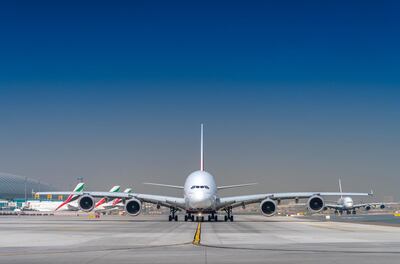
Worldwide, only Israel has a better vaccination rate than Britain and the UAE, which have inoculated more than half of their adult populations. All three countries have experienced a drop in infections, with the UAE seeing them halve to 1,800 a day in the last 10 weeks.
The UK’s red list now comprises 40 countries. Since hotel quarantine measures came into force on February 15, only Portugal has been removed.
Asked by The National what was required for the UAE to be removed from the red list, that bans air travel to Britain or requires travellers to pay to quarantine for 10 days in a government-approved hotel, Mr Shapps listed four key requirements: vaccination levels, infection levels, genome sequencing capabilities and credibility of coronavirus data.
"We're not restricting the UAE because of the levels of coronavirus in the UAE," he told The National. He said that while the Joint Biosecurity Centre, which provides objective analysis on Britain's Covid decision-making, "can work wonders studying all this detail", on occasions "they're having to make too many assumptions about where people are travelling to and from".
The transport chief went on to caution that moving on to the green list is also conditional on factors such as international transport hub passengers mixing with people in terminals from high-risk countries.
The UK is particularly concerned about keeping coronavirus variants out, which was a significant reason for placing India on the red list on Tuesday, with infections there running at nearly 300,000 a day.
Opinion polls also showed that the British public were asking the government to shut down the UK’s borders to keep them safe. “They do not want us to mess this up and they do not want to have gone through a year of lockdown for nothing,” Mr Shapps said.
He said the government is having bilateral conversations with a number of countries to restart air travel. “We're waiting for much of the rest of the world to catch up with our level of vaccination and that sits alongside the traffic lights system.”
The system would be categorised by the Joint Biosecurity Centre, reiterating this would include “where they're up to on things like vaccinations”.
The British government has also accepted that vaccination passports are inevitable. “There will be a large number of countries who say you can come here if you're vaccinated,” Mr Shapps said. “Vaccine passports and vaccine certification will be part of international travel and I don't think it's controversial.” He said more detail would be provided before Britain opens up for international travel.
With Covid tests certain to become part of air travel, Mr Shapps said it was imperative for companies to drive down their cost for individual travellers as “we nurse the airline and international travel sector back to health”.
He was hopeful that vaccinations would bring opportunities, “including the things we love, like international travel”, but warned there was also a risk that Covid-19 variants “could push the whole thing off kilter”.
“We have got to make sure that we don't end up bringing dangerous variants back into our country. And that's why the traffic light system will categorise countries based on risk. I'll be saying more about that at the beginning of May.”

